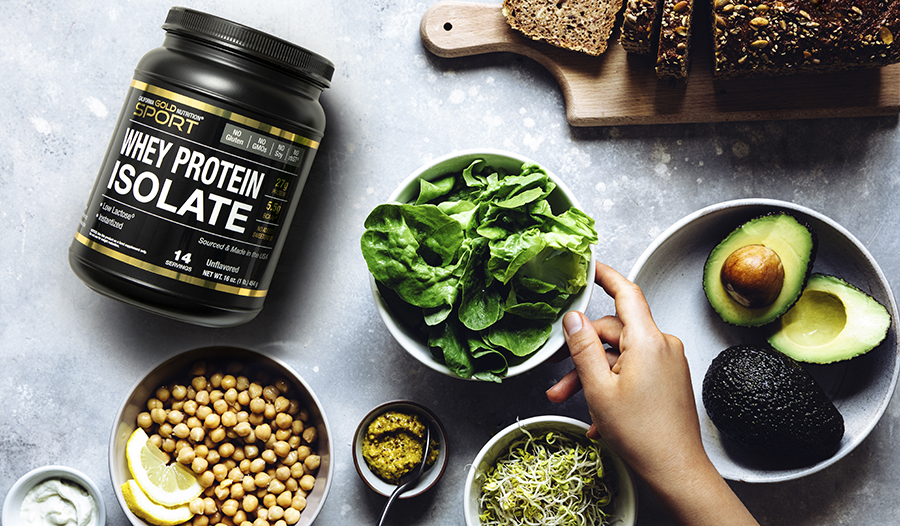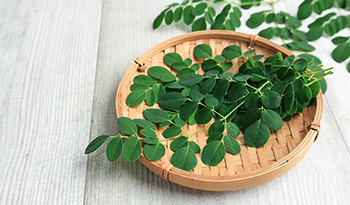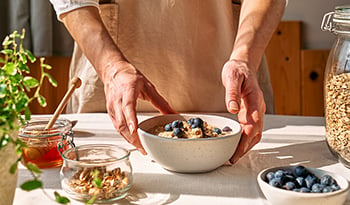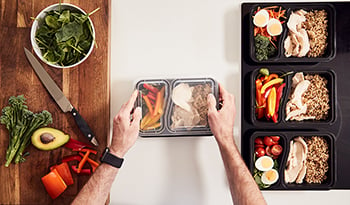9 Makanan Terbaik Untuk Dimakan Saat Puasa Intermiten Menurut Ahli Gizi

Dari semua pilihan diet yang layak, puasa intermiten (IF) saat ini adalah salah satu tren kesehatan paling populer di dunia dan salah satu yang telah mengumpulkan banyak perhatian—untuk alasan yang bagus. Sepanjang sejarah, puasa telah menjadi bagian dari kehidupan banyak orang baik karena alasan pribadi, spiritual, atau agama atau hanya karena mereka tidak memiliki akses ke makanan.
Bukti ilmiah menunjukkan betapa kuatnya puasa intermiten bagi kesehatan, berat badan, kesehatan metabolisme, dan penuaan kita. Banyak manfaat yang dapat diperoleh dari puasa, termasuk peningkatan sensitivitas insulin, kehilangan lemak termasuk lemak perut, peningkatan profil kolesterol, peningkatan produksi hormon pertumbuhan (HGH), dan peningkatan kesehatan usus.
Puasa intermiten adalah pola makan di mana Anda berputar antara periode makan dan puasa (tidak makan). Puasa intermiten yang optimal juga mencakup makanan sehat yang harus dikonsumsi tetapi sama pentingnya untuk mempertimbangkan kapan mengkonsumsinya.
Jenis puasa intermiten yang paling populer meliputi:
- Metode 12:12: Puasa selama 12 jam setiap hari dengan hanya makan antara jam 7 pagi dan 7 malam.
- Metode 16:8: Puasa selama 16 jam setiap hari dengan hanya makan antara siang dan jam 8 malam.
- Eat-Stop-Eat: Sekali atau dua kali seminggu, jangan makan apa pun dari makan malam satu hari, sampai makan malam keesokan harinya (puasa 24 jam).
- Diet 5:2: Selama 2 hari dalam seminggu, makan hanya sekitar 500-600 kalori.
Karena sebagian dari hari Anda akan dihabiskan untuk berpuasa, penting untuk berpikir secara strategis tentang cara memasukkan nutrisi yang cukup. Makan makanan yang tinggi karbohidrat olahan seperti tepung dan gula, minyak olahan seperti kedelai atau minyak nabati, terlalu sedikit asupan protein, kekurangan sayuran, dan camilan tidak sehat seperti keripik hanya akan membatalkan manfaat kesehatan yang Anda peroleh dari puasa. Makan makanan yang salah akan melawan manfaat puasa intermiten.
Apa yang Harus Saya Makan Saat Berpuasa?
Jadi sekarang Anda tahu kapan harus makan, Anda mungkin bertanya-tanya apa yang bisa Anda makan selama jendela makan Anda. Banyak metode puasa intermiten berarti Anda mungkin secara tidak sengaja kehilangan makronutrien tertentu sepertiproteinatau lemak sehat, atau mikronutrien sepertivitamin A,vitamin B,vitamin C,vitamin D,seng, atauelektrolit.
Penting untuk memastikan Anda makan makanan yang penuh dan memuaskan—sekarang bukan waktunya untuk terlibat dalam makan rendah kalori. Tujuannya adalah untuk mendapatkan semua nutrisi Anda dari makanan yang lebih sedikit. Berikut adalah makanan terbaik untuk dimakan saat berpuasa.
Protein
Protein sangat penting untuk kesehatan Anda secara keseluruhan, kesehatan kekebalan tubuh, dan untuk memastikan Anda mempertahankan massa otot. Otot diperlukan untuk mengoptimalkan keseimbangan gula darah dan menjaga metabolisme kita tetap tinggi. Kekurangan otot dapat meningkatkan berat badan, gula darah lebih tinggi, dan kelemahan.
Ingatlah untuk memasukkan makanan berprotein seperti yogurt tawar, kefir, buttermilk, atau keju cottage dalam diet Anda karena makanan ini kaya akanprobiotikuntuk mendukung mikrobioma usus yang sehat.
Sumber protein optimal meliputi:
- Salmon
- Telur
- Steak ribeye
- Daging babi
- Paha ayam
- Keju cottage
- Yoghurt biasa
- Kefir biasa
- Bubuk protein whey(tanpa tambahan gula)
- Bubuk protein kacang(tanpa tambahan gula)
- Legum
- Kacang-kacangan dan biji-bijian
Saat berpuasa, mungkin sulit untuk memiliki asupan protein yang cukup. Menambahkan bubuk protein selama jendela makan Anda dapat bermanfaat besar dengan menambahkan asam amino tertentu sepertiL-glutaminatauasam amino rantai cabang (BCAA).
Lemak Sehat
Lemak sehat sangat penting untuk kesehatan yang optimal. Namun, banyak orang memiliki rasa takut akan lemak, tetapi seharusnya tidak. Lemak sehat diperlukan untuk kesehatan sel, energi, produksi hormon, isolasi untuk membuat kita tetap hangat, dan perlindungan untuk organ kita. Menambahkan lemak ke dalam makanan diperlukan untuk memetabolisme nutrisi yang larut dalam lemak sepertivitamin D,vitamin E,multivitamin,atau bahkan herbal dan rempah-rempah sepertikunyitataurosemary. Vitamin ini membutuhkan lemak dan tidak larut dengan air.
Sumber lemak sehat meliputi:
- Minyak zaitun
- Minyak alpukat
- Minyak kelapa
- Minyak MCT
- Minyak samin
- Alpukat
- Kacangdanmentega kacang
- Biji chia
- Biji rami
- Zaitun
Ikan dan Makanan Laut
Makanan lautdari jenis apa pun adalah pilihan yang sangat baik selama masa makan Anda. Ikan seperti salmon tangkapan liar atau sarden sangat tinggi tidak hanya protein tetapi juga kaya akan lemakomega-3yang diperlukan untuk kesehatan optimal dan untuk mengurangi peradangan sel. DHA dan EPA dianggap lemak esensial — lemak omega-3 yang harus kita dapatkan dari makanan kita. Sayangnya, dengan puasa intermiten, banyak yang kekurangan nutrisi yang diperlukan ini, dan mengapa suplementasi akan menjadi pilihan yang sangat baik dalam kasus ini.
Ikan dan makanan laut untuk mengoptimalkan puasa intermiten meliputi:
- Salmon yang ditangkap di alam liar
- Ikan trout pelangi
- Makerel
- Sarden
- Ikan teri
- Kerang
- Tiram
- Kepiting
- Lobster
- Udang
Sayuran
Sayuran sangat penting untuk kesehatan yang optimal dan menambahkannya ke dalam diet Anda sementara IF adalah strategi yang sangat baik. Sayuran juga berfungsi sebagaiprebiotik—serat nabati memberi makan serangga usus sehat kita yang menghasilkan usus yang lebih sehat, tubuh yang lebih ramping, dan kesehatan yang optimal.
Sayuran kaya nutrisi untuk dimakan saat puasa intermiten:
- Bayam
- Chard
- Arugula
- Kale
- Brokoli
- Kembang kol
- Kubis Brussel
- Kubis
- Seledri
- Asparagus
- Rumput Laut
Buah
Buah bisa menjadi sumber makanan kaya nutrisi yang disambut baik saat seseorang berpuasa intermiten. Namun, memilih buah dengan gula rendah atau sedang penting karena jumlah gula buah yang berlebihan (fruktosa) dapat meningkatkan masalah kesehatan metabolisme dan membatalkan banyak manfaat yang diperoleh selama IF.
Buah terbaik untuk dipilih untuk puasa intermiten meliputi:
- Stroberi
- Rasberi
- Blackberry
- Kiwi
- Jeruk bali
- Apel
- Lemon
- Jeruk nipis
- Alpukat
- Tomat
Gandum Utuh
Biji-bijianutuhadalah jenis makanan yang unik karena bagi banyak orang, mereka tidak memiliki peningkatan respons gula darah, peradangan, atau gangguan usus, tetapi bagi yang lain, mereka memiliki semua penyakit yang disebutkan di atas. Jika Anda salah satu dari mereka yang tidak dapat mentolerir biji-bijian melalui lektin atau gluten yang melekat pada biji-bijian, tinggalkan mereka dari daftar belanja Anda. Ingatlah untuk menghindari semua makanan olahan, termasuk biji-bijian seperti tepung putih.
Biji-bijian sehat yang membantu mengoptimalkan puasa intermiten meliputi:
- Organikoatmeal
- Millet organik
- Organikquinoa
- Organikberas merah
- Beras hitam organik
- Organikberas liar(Sebenarnya benih)
Legum Dan Kacang-kacangan
Kacangdan kacang-kacangan adalah pilihan yang sangat baik untuk perencanaan makan strategi intermiten Anda. Mereka sering diabaikan tetapi merupakan pembangkit tenaga listrik sejati yang dikemas denganserat,antioksidan,protein,vitamin B, dan vitamin dan mineral lainnya. Mereka membantu menyeimbangkan gula darah, mencegah rasa lapar dan mengidam (sempurna untuk puasa intermiten), mengurangi kolesterol LDL, dan meningkatkan kesehatan usus, episentrum untuk setiap aspek kesehatan.
Kacang dan kacang-kacangan yang kaya nutrisi meliputi:
- Kacang Hitam
- Buncis (kacang garbanzo)
- Buncis
- Lentil
- Kacang lima
- Kacang merah
Bumbu Dan Rempah-rempah
Herbal dan rempah-rempahmemiliki dampak yang kuat, kuat, dan anti-inflamasi pada kesehatan kita, dan juga lezat. Mereka membantu mengoptimalkan hasil puasa intermiten Anda. Tambahkan ramuan dan bumbu apa pun ke hampir setiap makanan.
Bumbu dan rempah-rempah terbaik meliputi:
Minuman
Puasa intermiten berarti Anda tidak bisa makan selama periode puasa Anda. Aturan yang baik untuk diingat adalah bahwa apa pun yang mengandung kalori akan berbuka puasa seperti soda, jus, dan kopi atau teh dengan semua jenis susu, krim, atau pemanis.
Namun, Anda bisa minum air dan kopi atau teh tanpa pemanis tanpa susu atau krim. Bahkan, kopi dan teh (teh hijaukhususnya) membantu meningkatkan manfaat puasa intermiten.
Minuman terbaik untuk mengoptimalkan puasa intermiten meliputi:
Poin Penting
Puasa intermiten adalah cara makan yang sederhana dan aman dan berdasarkan bukti kuat. Tanpa makanan mungkin tampak menakutkan pada pandangan pertama, namun, ketika Anda mulai melakukannya, itu benar-benar cara yang ampuh dan mudah untuk mengoptimalkan kesehatan secara keseluruhan, berat badan, kesehatan otak, dan kesehatan usus. Penting untuk dicatat bahwa puasa dapat memengaruhi cara tubuh Anda menyerap vitamin dan obat-obatan tertentu, jadi Anda pasti ingin meminumnya dengan makanan.
Jika orang Romawi kuno menggunakan puasa intermiten untuk tetap bugar, kuat, dan sehat, mengapa kita tidak?
PENAFIAN:PUSAT KESEHATAN tidak dimaksudkan untuk memberikan diagnosis...
















































































 Daftar Isi
Daftar Isi
















